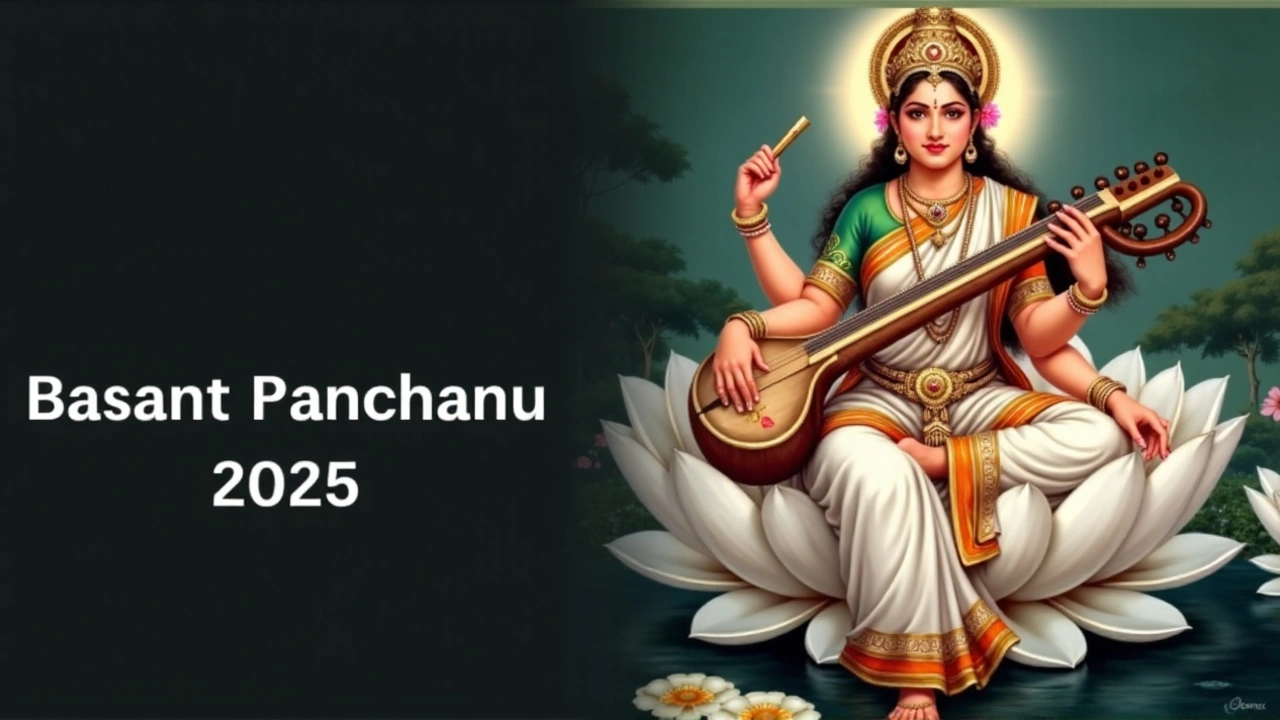Culture and Religion: Celebrate Basant Panchami 2025
Welcome to the Culture and Religion hub of NewsBuzzIndia. Here we bring you fresh stories about India’s rich traditions, festivals, and spiritual practices. If you’re curious about how a simple yellow cloth can signal the start of spring or why families gather for a special prayer, you’re in the right place.
One of the most colorful events on our calendar this year is Basant Panchami, observed on February 2, 2025. The day marks the arrival of spring and honors Goddess Saraswati, the deity of knowledge, music, and art. Across schools, homes, and temples, people dress in bright yellow, sing devotional songs, and set up a special altar for the goddess.
Why Basant Panchami Matters
Beyond the festive vibe, Basant Panchami carries a deeper message. It reminds us that learning and creativity are worth celebrating every day. In many parts of India, students place books, musical instruments, and a rice‑filled pot on the Saraswati altar, asking for wisdom and success. This simple act links education with spirituality, turning a cultural ritual into a personal motivation boost.
Historically, the festival also signals the transition from winter to the fertile season. Farmers admire the mustard fields turning golden, and they pray for a bountiful harvest. The dual focus on knowledge and nature makes Basant Panchami unique among Indian festivals.
How to Celebrate the Festival
Want to join the celebration? Start by wearing something yellow – a dress, a scarf, or even a simple t‑shirt. The color reflects the blooming mustard flowers and lifts the mood instantly. Next, prepare a modest altar at home. Place a picture or idol of Goddess Saraswati, add fresh flowers, a bowl of water, and a few sweets.
Recite the Saraswati Aarti or play a soft hymn while lighting a lamp. If you have children, involve them by letting them offer a small book or a pencil to the goddess. This gesture turns the ritual into a learning moment and builds family bonds.
Many schools hold a Saraswati Puja in the morning. Students dress in yellow, sing the traditional “Om Saraswati” chant, and receive small gifts like notebooks or pens. If you’re a teacher, consider organizing a mini‑workshop where students share poems or songs dedicated to the goddess. It’s a fun way to blend education with culture.
Food also plays a big role. Classic dishes like sweet poori, halwa, and saffron‑infused rice are served. The bright colors of the meals match the festive spirit and make the day feel special.
Finally, spread the joy online. Share your Basant Panchami wishes on social media, tag friends, and use hashtags like #BasantPanchami2025 or #SaraswatiPuja. Seeing how others celebrate can inspire new ideas for your own observance.
Whether you’re watching a local procession, visiting a temple, or simply lighting a candle at home, Basant Panchami offers a chance to pause, appreciate learning, and welcome the new season. Keep an eye on this category for more stories about Indian culture, religious festivals, and the traditions that shape daily life.
Stay curious, stay informed, and enjoy the vibrant mix of heritage and modern life that defines India’s cultural landscape.

Basant Panchami, celebrated on February 2, 2025, marks the beginning of spring and honors Goddess Saraswati, the deity of wisdom and arts. Observed widely in India, it involves vibrant customs like wearing yellow, reflecting the mustard fields in bloom, and performing Saraswati Puja. This festival underscores the significance of wisdom, learning, and cultural heritage, with families and educational institutions participating in the festivities.
